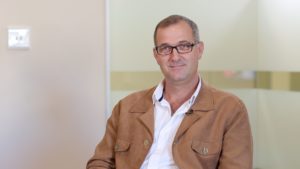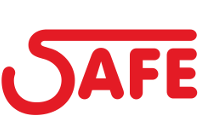One of the best things about working at SAFE is that the company culture encourages employees to act as they think fit, provided that they work within the broad company framework and assume full accountability for their actions.
This is the view of Dries Van Rooyen, SAFE’s general manager of farming operations, who has overall responsibility for the successful running of SAFE’s’ entire farming operation.
“Over the past 10 years we have refined our systems to maximise output to the benefit of everyone at SAFE. One of the biggest factors in our success has undoubtedly been finding the right people to manage the farms and run the head office operation.
“Creating a culture of ownership among the managers and staff is essential – they should feel they are running the farms as if they were their own. In addition, they need to fit in with the company culture. Farming isn’t just a job – it’s a way of life that you need to embrace wholeheartedly for the operation to be a success, emotionally and profit-wise.
“We look for managers and staff who talk of ‘our harvest, our grapes and our citrus’. We create an environment where managers can take ownership of their units, and any new systems that are put forward are discussed among everyone concerned and then the best options are implemented. There’s no top-down management at SAFE – we take everyone’s opinion on board.”
Dries’s role at SAFE encompasses everything that goes with running a large agri-business in the 21st Century. This includes planning, development, budgeting, preparation of the vineyards and orchards and the technical aspects of growing table grapes and citrus, as well as the logistics of packing and marketing the products.
“We have about 900 ha planted to citrus and 480 ha of table grapes on SAFE farms and 300 ha of citrus and 180 ha of grapes on the BONO farms, which are mainly in the Western Cape, Limpopo, Eastern Cape and Northern Cape. In addition, we have a flock of more than 1 800 Dorper sheep on Nuwepos, a farm near Vanrhynsdorp.
“As with any well-run business, there is a strong focus on financial aspects to ensure that we remain profitable and viable. The other main focus of my role is production, ensuring that this part of the business runs smoothly.”
Dries joined SAFE as a farm manager in Namibia in 2004, when the company still had farming interests in that country. From there he moved to the Eastern Cape where SAFE was building a packhouse near Addo in the Eastern Cape. The plan was for Dries to manage the packhouse and gradually become involved in the production and purchase of citrus from a number of farms in the district.
However, SAFE changed strategy, transitioning from a marketing business to a producer exporter. In 2009 SAFE began acquiring farms and set up the financial and production divisions to manage the new business.
“Initially I studied cost and management accounting after completing my defence force call-up. Then I went farming”, says Dries:
“I grew up on a farm near Upington, and while I was studying I did vacation work on a table grape farm in the Northern Cape. At the end of my studies I was offered a job on the farm where I worked as a student, and started to learn the ropes of farming grapes and citrus.
“Over the years I have continually upgraded my agri skills, and my current role as farming operations manager combines finance and agriculture, so my previous training and experience are fully utilised in this position.”
It goes without saying that one person can’t do this job alone, and Dries works closely with the managers and staff on the farms as well as a team of financial experts who help with budgets and projections, and a range of consultants who provide valuable insights and advice on farming techniques and technologies, as well as financial expertise.
“I don’t believe in imposing my views on others, so my management style is one of involving everyone in the decision-making process. In that way, the facts speak for themselves and the best ideas tend to be implemented – and they are certainly not always mine,” says Dries.
“I frequently travel around the country and spend time on the farms with my focus on the requirements of the season. This involves not only on picking and packing but also supporting our managers in their work,” says Dries.
“The next two years are going to be interesting for agribusiness in South Africa, given the unfavourable exchange rate and expected lower yields due to climate changes.
“This means we will have to focus on different management techniques to up production and lower costs where possible to ensure we remain profitable, but we believe we are ready for the challenge, and SAFE will continue to make its mark in the industry.”

